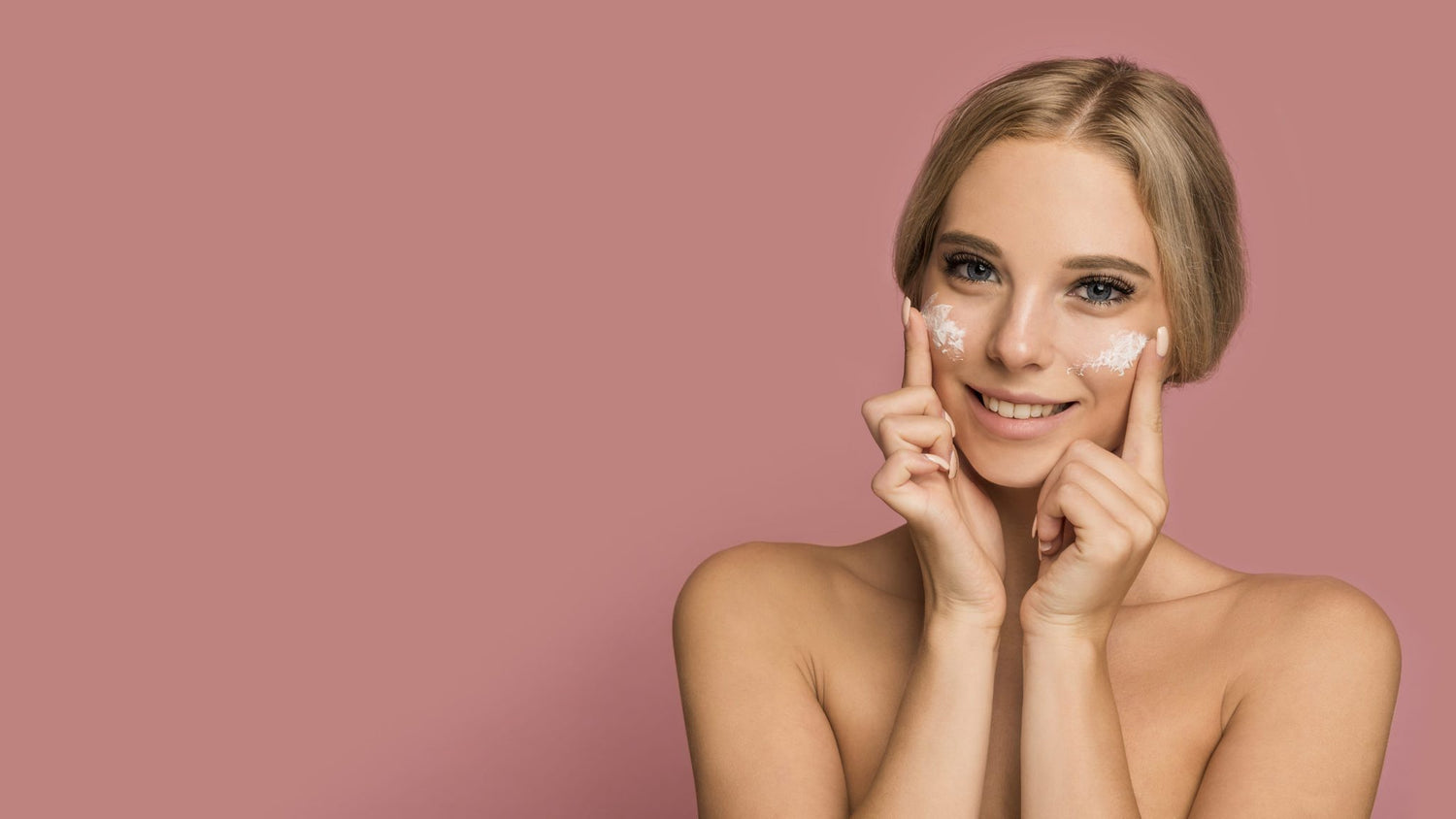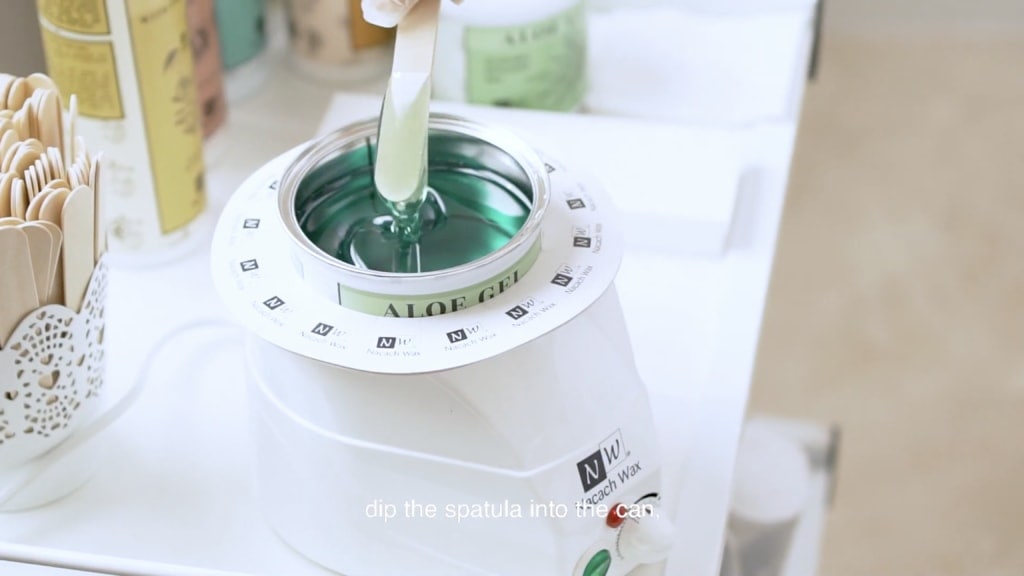Hair removal by waxing can be unpleasant, especially if it’s being done on the face, which tends to be more sensitive. Of course, the process of facial waxing itself isn’t the only thing that can be problematic. Post-facial waxing bumps, in particular, can be an annoying and unsightly complication of facial waxing.
Fortunately, there are ways to minimize and avoid this complication of facial waxing for both partial or full face waxing. Whether you’re doing the deed yourself, or you’re a professional hoping to improve your client experience, here is what you need to know about post wax care
What You Should Know About Facial Bumps
Before we dive into tips for preventing and curing facial bumps, it may be helpful to know precisely what you’re dealing with.
Small Bumps Are a Normal Reaction: Waxing irritates and stresses the skin, which can result in a mild inflammatory reaction called folliculitis. This appears in the form of a bumpy rash that shows up after hair removal. Since the skin around the face is particularly sensitive, it is at a higher risk for post-waxing bumps. In most cases, the irritation will go away on its own in a few days.
Infections and Ingrown Hairs: In some cases, bumps may become infected. An infected bump persists for several days after waxing and is often white or fluid-filled. Bumps that develop several days after waxing, on the other hand, are usually ingrown hairs. These are sometimes referred to as an ingrown pimple. An ingrown hair occurs when hair grows into the skin instead of up to the skin’s surface.
Allergic Reactions: If you experience swelling on and around the waxed area, that persists for several days, you may be experiencing an allergy. In this case, it’s worth taking a careful look at the products that you are using. In most cases, a newer waxing product is the culprit. However, you can patch test everything from your wax to the lotion you use after waxing on your hand to help identify and eliminate the problem.
How to Get Rid of a Pimple on the Lip: If you have a pimple or single red bump on your lip after your wax, you’ll want to rule out a cold sore. These can be alleviated with cold compresses and other naturally soothing remedies listed below but are most likely not caused by waxing.
When to Seek a Medical Opinion: If you notice a bump that is not going away for several weeks or that appears to be growing in size, you’ll want to talk to your doctor. Not all persistent bumps are bad news, but you do want to rule out anything problematic.
How to Prevent Pimples and Facial Bumps After Waxing

A lot of the time, just knowing that the bumps are normal and that they will go away soon, can help you rest easier after your face wax. If you are in the beauty industry, educating your clients about the risk of bumps and giving them tips for pre wax care before you start the procedure can help avoid unpleasant surprises. If you know that you are prone to red bumps after waxing, it is also a good idea to schedule your face wax in a way that lets your face recover.
Before Wax Time: Make sure that the area of the face that is to be waxed is clear of lotions and makeup. A mild exfoliant will also help clear away dead skin cells and reduce irritation.
Choosing Your Wax: If you know that you have sensitive skin, opt for a wax that is known to be gentle, such as Nacach's Hard Wax. If you’re going to get waxed by a professional, make sure you communicate that your skin is sensitive as well as any allergies that you may have.
Cool Compress: A cold compress is one of the simplest aspects of after wax care. Cold naturally calms inflammation, which can help speed up the healing of post-waxing bumps. Simply apply a cold compress to the affected area for up to 20 minutes, and you should notice that the area is calming down. Note, however, that while this will help, it will not completely resolve the bumps.
Avoid Heat: Just as cold can calm inflammation, heat can serve as an aggravating factor. Thus, you’ll want to stay away from hot environments as much as possible and avoid hot baths or showers after facial waxing. You’ll also want to avoid any strenuous activity for the first 12-24 hours after waxing because perspiration and, again, heat, will irritate the area. This is especially true with full face waxing for men.
Avoid Touching the Affected Area: While it’s tempting to poke, and even pop the bumps, this will only lead to more redness and irritation. If your hands aren’t clean when you’re touching your face, this may also lead to infection.
Skip Perfumed Products and Makeup: Perfumed lotions and creams can irritate freshly waxed skin. If your face is particularly sensitive, you may also want to avoid applying makeup to the waxed area for about 24 hours. Some people can wear makeup with no issues, but those with sensitive skin may experience irritation. For some makeup can be great for covering up bumps.
Natural Remedies
If you know that post-facial wax bumps are a problem, there are a few home remedies that can help. Quick disclaimer, however, do not use a remedy if you know that you are allergic to the ingredients.
Sugar Scrub: A simple sugar scrub can help soothe irritated skin and prevent facial pumps as well as pubic acne after waxing. You can pick one up in-store or make one yourself; just mix half a cup of sugar with either coconut or olive oil.
Aloe Vera: Aloe Vera has amazing, natural anti-inflammatory properties. If you have a plant of aloe vera growing in your home, simply cut open the leaf, careful with the spikes, and squeeze the inside onto the affected area up to three times a day.
Tea Tree Oil: Tea tree essential oil is great for both cleansing skin and calming irritation that is present in freshly waxed skin. Simply mix several drops of tea tree oil with olive or coconut oil or find a cleanser with tea tree oil as a major ingredient.
Witch Hazel: Witch hazel has excellent calming properties for the skin and is also useful for protecting your skin against infection. Soak a cotton pad in pure witch hazel and use it on the affected area. This can be done up to three times a day.
Apple Cider Vinegar: This is another natural antiseptic that can be used to promote healing and calm infections.
Over-the-Counter Solutions
Hydrocortisone Cream: This is a topical steroid cream that will help reduce irritation after waxing.
Tea Tree Oil Gel: This can be applied immediately after waxing and has an immediate cooling effect.
Aloe Vera Gel: If you don’t have an aloe vera plan hand, you can use a store-bought gel to substitute instead.
Takeaway
Face waxing can irritate the skin, and this is a normal reaction Cold is the simplest and easiest way to soothe irritated skin. Natural remedies such as aloe vera, tea tree oil, and apple cider vinegar can help soothe freshly waxed skin and prevent infection. Cortisone cream can be highly effective at calming inflammation for individuals that experience a severe reaction.




Leave a comment
This site is protected by hCaptcha and the hCaptcha Privacy Policy and Terms of Service apply.